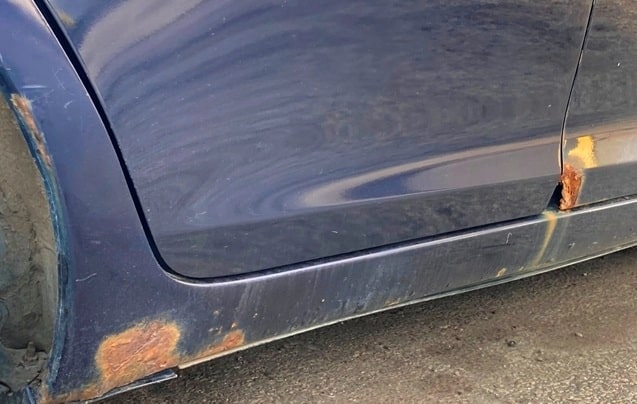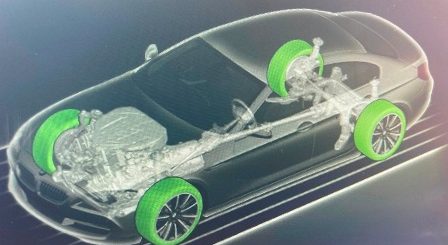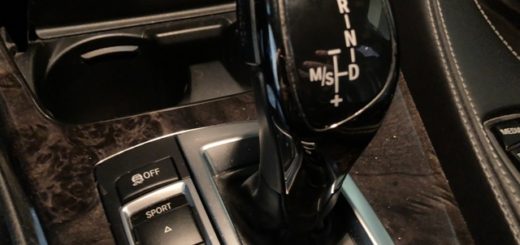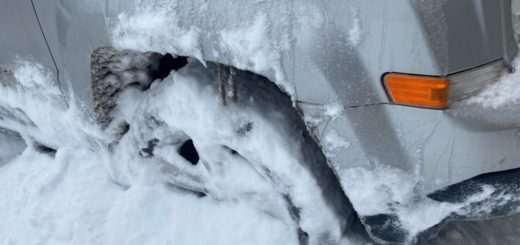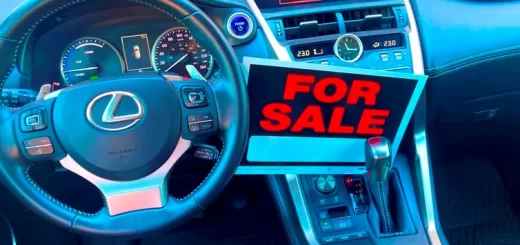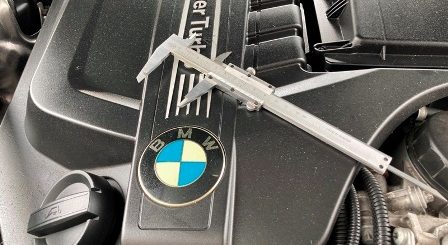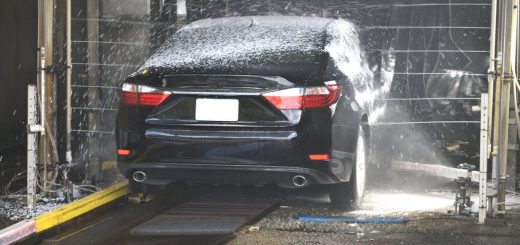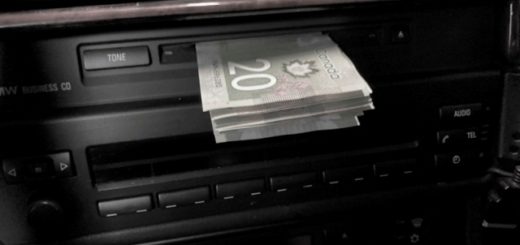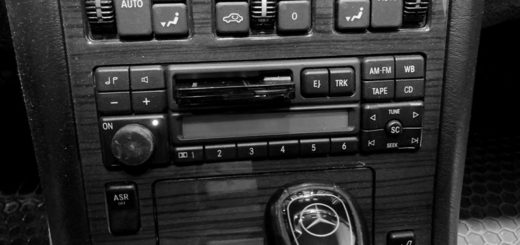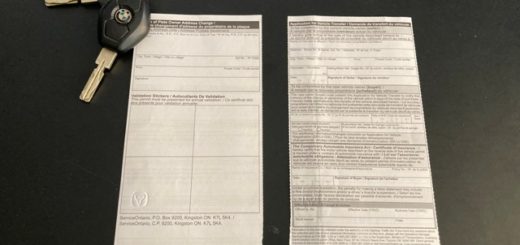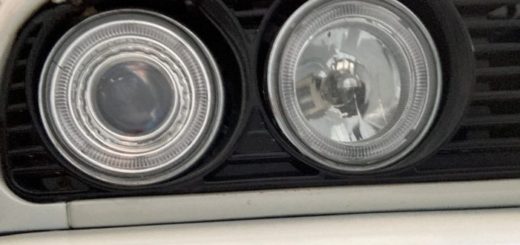Should You Rustproof Your Car in Ontario?
Should You Rustproof Your Car in Ontario: Rustproofing is prevention (or at least trying to prevent) rust from decimating your used car body and chassis. Factories have all started applying some kind of rust protection with some manufacturers more successful than others. Have you ever seen a rusty Volvo? Yeah, me neither.
What is Rustproofing
Rustproofing as the word itself says its prevention and/or delay of rust, i.e. prevention oxidation of your car. Rust feeds on metal and rustproofing compounds add a layer of protection between metal in your car and outside elements, water and salt. There are different compounds and techniques of rustproof applications, from rubber layers to oil based products.
Rustproofing is mostly applied on undercarriage but also inside vehicle doors. Holes are made on vehicle doors and an extension is inserted inside door panel to spray oil based rustproofing on exposed metal inside doors panels.
Bought a used car which has never been rustproofed, should I rustproof it?
Depends on condition and age of the car. If car has no rust on chassis or body and is in fairly good condition then yes, you should rustproof it.
If car already has extensive rust formations on undercarriage or body, then don’t bother with it. Rustproofing only helps to prevent rust from developing but does not stop existing rust from spreading. Professionally repairing rust patches by a bodyshop is expensive and might not be worth if rust is extensive.
Prior to paying for repairs on a rust damaged area, check undercarriage and body of your car. You dont want to spend for fixing rust damage on one area only to pop out soon after on another place. In cases of extensive rust, best course of action is to drive your car until the end and then buy another one.
(If you are also looking for a fast and easy solution to sell your car, more here on “How To Sell Your Car Fast In Ontario” )
Rust prevention
Rustproofing techniques used by manufacturers consist on galvanizing vehicle chassis or spraying rubberized material creating a wall between environment elements and metal. However, all these measures have a lifespan. Usually car warranties will cover a used car up to 6 years or so, after that you are on your own.
Rust is progressive and spreads continuously, sending your used car structural integrity and resale value to the bottom. Especially if salt is used in winter, salt likes to eat cars.
Should You Rustproof Your Car in Ontario: Optional Rustproofing
Most car manufacturers offer optional rustproofing, at extra charge. Optional rustproofing usually is a rubberized coat sprayed to undercarriage of your vehicle. Depending on type of vehicle and dealership, it will set you back anywhere between $700 to $1,300.
Electronic Rust Inhibitors
These are electronic devices which are mounted on engine bay and connected to your car battery. It sends a low voltage current through a car body/chassis supposedly preventing rust.
These Electronic gadgets sold as rust preventing alternatives have a cost of about $300. However, instead of preventing rust formation will most likely prevent you from spending $300 on something else useful. These were designed originally for use in ships, tankers and bridges.
Principal requirement for Electronic Rust Protectors is water. I don’t mean rain water but deep water. These were designed originally for use in ships, tankers and bridges. Objects have to be submerged in water and be of solid steel for this thing to work…and it works fine, on metals submerged in water. A used car on the other hand is a mix of plastic, rubber and steel.
Until you figure out how to remove every rubber bushing and rubber seal from your car and drive it daily on bottom of a river or lake, better to stick with traditional rustproofing.
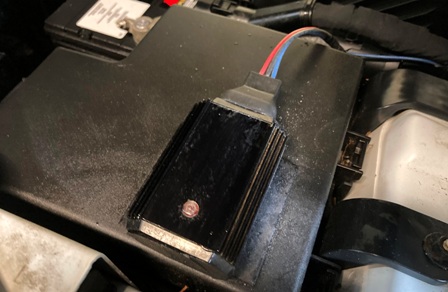
Types of Rustproofing
Aftermarket Rustproofing: Aftermarket Rustproofing is an affordable alternative worth pursuing. Aftermarket is only a fraction of the price compared to dealerships and available almost everywhere. There are several types of aftermarket rustproofing.
1) Tar Rustproofing
Tar is a black thick substance sprayed on undercarriage forming a somewhat flexible coat. Two problems with Tar coating: as times passes it will harden and crack. Cracks will allow moisture and salt to come in contact with exposed metal and start corrosion.
Also, Tar is thick and will not penetrate hard to reach areas leaving these parts exposed. However, tar is still a good and solid rustproofing solution.
2) Permanent Rustproofing
Permanent rustproofing is a rubberized material applied to vehicle undercarriage. This kind of rustproofing lasts for a long time (usually 10 years) and is also applied on inside of doors and underneath fenders. As with tar rustproofing, over time rubberized material will lose elasticity and develop cracks. Cracks will allow water and salt to enter in contact with bare metal and form rust.
Anyways, permanent rustproofing works fine for a long period of time. However, it is more expensive than Oil rustproofing. Permanent rustproofing cost anywhere between $400 to $600 with dealerships being the most expensive.
Oil Based Rustproofing
Oil based rustproofing is the best solution, for time being. Cost of oil rustproofing will be around $150 or so depending on how big your vehicle is and where you do it. Dealerships as per usual are more expensive than independent repair facilities.
There are two types of oil rustproofing, Drip-less and Drip oil sprays.
3) Drip Oil Rustproofing
This thing will drip and make a mess for few days after application. Drip oil rustproofing is thin oil which will creep everywhere and offer protection even at hard to reach areas. However, as it is quite thin will not last long and is recommended to be applied every year.
4) Drip-less Oil Rustproofing
Drip-less rustproofing a thick oil based substance, looks like liquid grease. This type of application is thicker and harder to wash off, will last a long time. Drip-less Oil Rustproofing is also recommended to be applied every year but that sounds like an overkill and unnecessary. Every two years should do just fine.
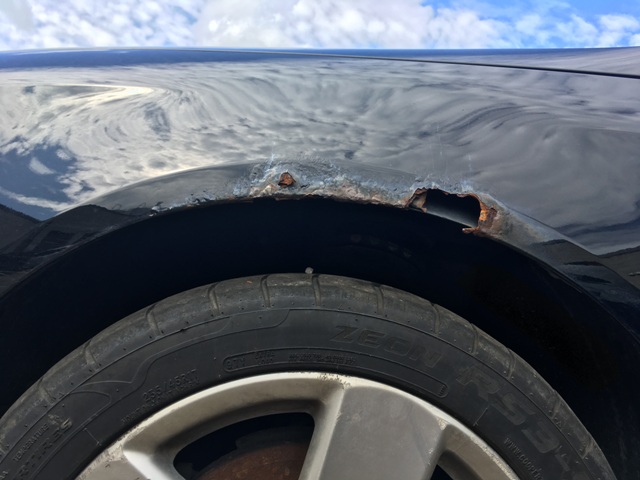
Applying oil rustproofing every two years is more than sufficient. If a car will still rust when rustproofing has been applied every two years, is doubtful spending more money to rustproof it every year would have made a difference.
Rustproofing Your Used Car Ontario
Driving in Ontario for example is what manufacturers consider harsh environment for a used car. Cities are even worse with daily bumper to bumper traffic, dusty conditions, potholes, salt.
Should You Rustproof Your Used Car in Ontario
Example on image above shows extensive rust damage on engine frame of this used car. This is a Toyota Sienna which spent all its life in Toronto and was barely driven. Even though is 11 years old, it has only 100.000km on the clock. Still looks brand new on surface, but a disaster underneath.
Car above was never rustproof therefore corrosion damage from Ontario harsh winters and salt, developed on engine frame and other places of under-body. Replacing engine frame and repairing under-body/chassis is extensive work and will cost more than car is worth.
This vehicle should have had a lot of life left in it, if owner bothered to rustproof it 4 or 5 times during those 10 years. $600 in 10 years would have made a big difference.
According to government of Quebec rustproofing helps prolong your vehicle lifespan.
Conclusion: Should I Rustproof My Used Car
Yes, rustproof your car if you live in a place where salt is used in winter, Ontario for example. Salt is an electrolyte which increases conductivity of water, that translates into rust.
Salt will creep inside every opening, finding unpainted metal or cracks starting corrosion on your used car. Once corrosion starts, will continue to spread and not stop until it eats your used car.
( If ou are also looking sell your car easy and fast, more here on “How To Sell Your Car Fast In Ontario” )
Comments: If you have any questions or suggestions related to this post or Used Car Toronto in general, don’t hesitate to use comment section below.


